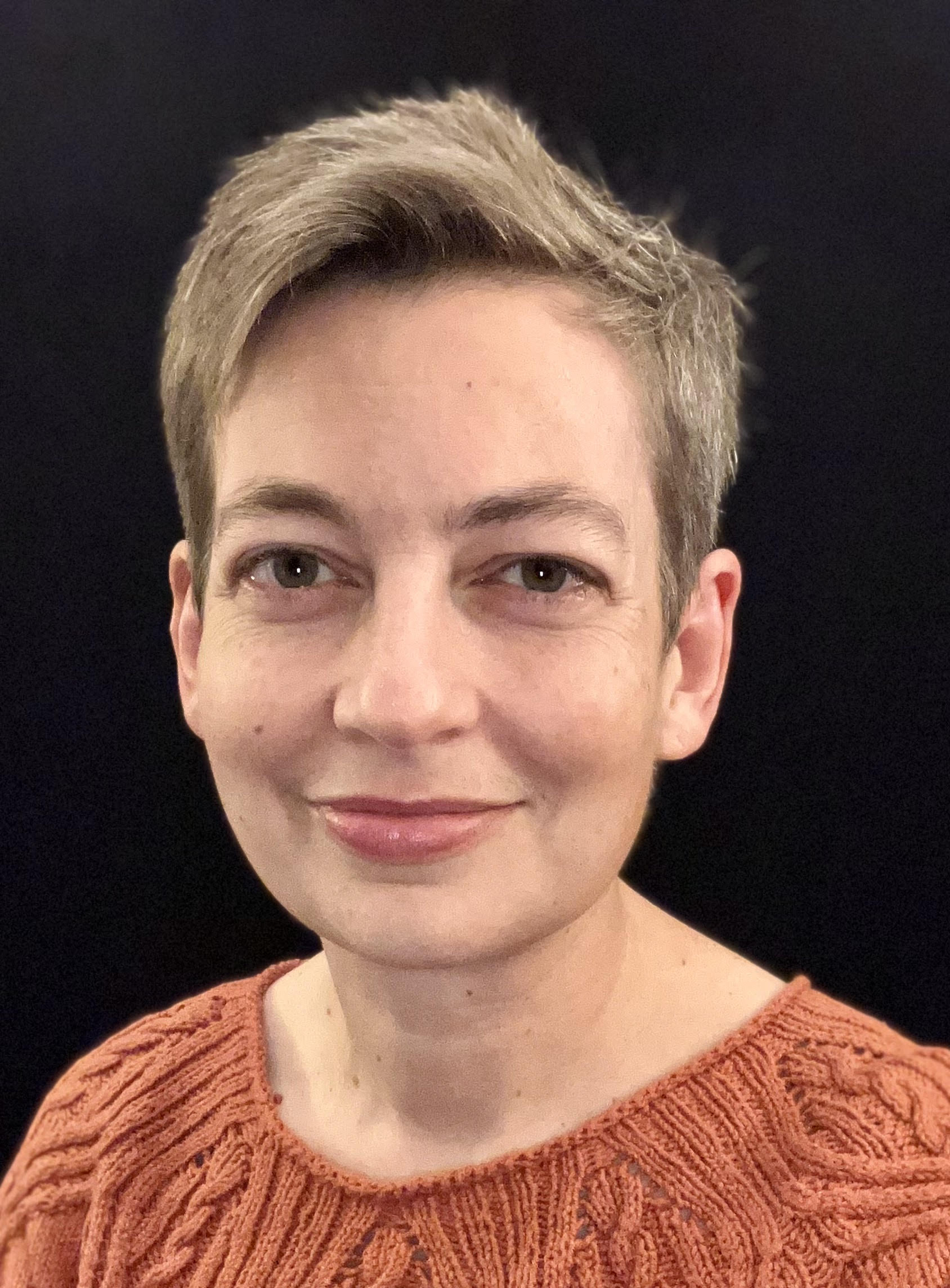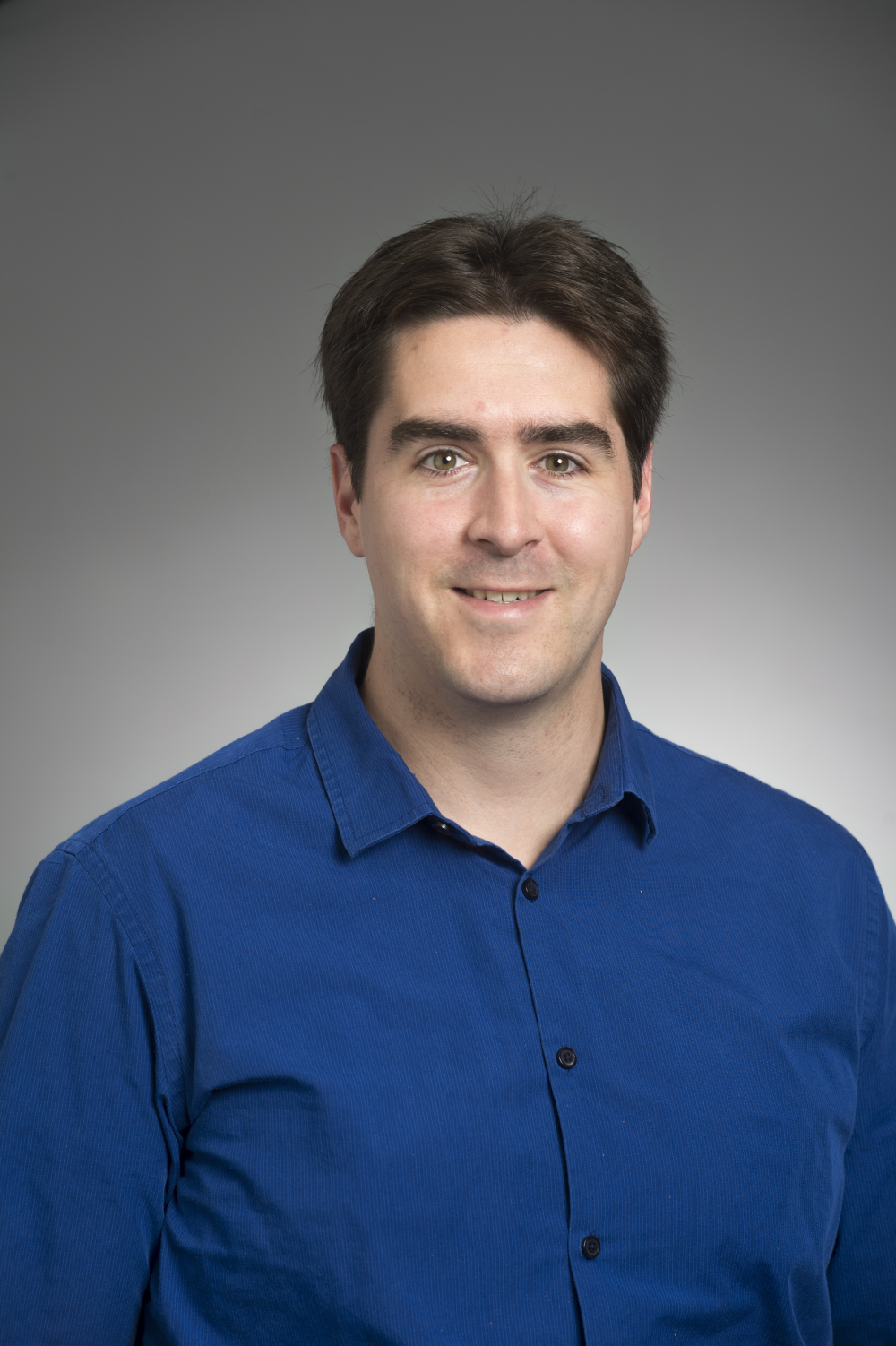Tuesday, May 14, 2024 09:00
Dr. Carja works to quantitatively understand the evolutionary architecture of intelligent, collective systems, using the tools of dynamical systems, network theory, population genetics, machine learning and statistical inference, and widely available, yet underused, datasets.
Topological puzzles in biology: how shape and structure control a system's evolution
Understanding how the spatial arrangement of a population shapes its evolutionary dynamics has been of long-standing interest in evolutionary biology. However, most previous work assumes very regular symmetric structures, such as a small number of demes connected by migration corridors. This encoded regularity makes it hard to link these models to the influx of spatially resolved biological datasets that are revolutionizing molecular biology. In this talk I will explore how to think about and understand the role of complex spatial topologies in shaping a system's evolutionary dynamics and discuss the challenge of finding the right spatial geometric representations that can both capture the complexity of spatial structure in emerging datasets, but also allow for mathematical modeling tractability and interpretability.
Tuesday, May 14, 2024 13:30
Mingfu Shao is an assistant professor in the Department of Computer Science and Engineering, The Pennsylvania State University. He earned his PhD in Computer Science from École Polytechnique Fédérale de Lausanne (EPFL), Switzerland, in 2015. After that he pursued postdoctoral training as a Lane Fellow at Carnegie Mellon University prior to joining Penn State in 2018. Mingfu and his research group work on a variety of topics in algorithmic sequence analysis. They have been developing methods for assembling full-length transcripts from various RNA-seq data, including Scallop (for Illumina short-reads RNA-seq data), Scallop2 (for multi-end single-cell RNA-seq data), TERRACE (for assembling circular RNAs), and Aletsch (for assembling multiple RNA-seq samples). Mingfu’s group also works on designing efficient hashing and seeding algorithms for aligning and comparing sequencing data with high-error rates (e.g., error-prone long reads). Mingfu is a recipient of Dimitris N. Chorafas Foundation Award (2015) and NSF CAREER award (2022).
Transcript assembly for modern RNA-seq data
RNA-seq has been instrumental in studying gene activities. RNA-seq technologies evolve rapidly, enabling the profiling of various types of expressed RNAs with longer reads at single-cell resolution. These advancements bolster the broad use of RNA-seq but also bring new computational challenges for its analysis. In this talk, I will introduce our recent work in reconstructing full-length linear and circular isoforms from diverse RNA-seq data, a problem known as transcript assembly. I will highlight our new algorithms designed to capture the critical signals in the data, including paired-end information, barcode-linked reads, and multiple samples, thereby enhancing assembly accuracy. I will also discuss major (human) transcriptome annotations and their impact on transcript assembly.
Wednesday, May 15, 2024 09:00
Dr. Nathan Clark is an Associate Professor in Biological Sciences at the University of Pittsburgh. He trained in Genome Sciences at the University of Washington under Dr. Willie Swanson and later at Cornell with Dr. Charles Aquadro. His lab, which opened in 2012, studies the genetics of adaptive evolution, during which species adopt novel traits to overcome challenges. With the goal of identifying specific genetic elements responsible for adaptive change, his lab has developed computational methods used around the world for comparative genomics, Evolutionary Rate Covariation and RERconverge. The lab applies these methods to biological systems including eyesight, deepwater diving, and lifespan, among others.
Dr. Clark has created and led local seminar groups focused on building community in evolutionary genetics, and through training and education he works to increase diversity in science. He serves on the editorial board of Evolution, and in 2019, he received the Senior Vice Chancellor's Distinguished Research Award.
History Repeats Itself: Genetic changes underlying convergent phenotypic traits are revealed through comparative genomics
A combination of comparative genomics and phylogenetics is increasingly being used to assign genotype to phenotype through an approach called PhyloG2P. PhyloG2P methods search for positive selection, shifts in evolutionary rate, or pseudogenization associated with the branches over which a specific convergent phenotype evolved, such as long lifespan or loss of eyesight. These approaches have identified new genes and regulatory regions controlling traits important to fitness and health.
Wednesday, May 15, 2024 13:30
Sarah Bagby earned bachelor's degrees in biochemistry, chemistry, and philosophy at the University of Chicago, then studied physiology at Oxford as a Marshall Scholar. She returned to the US to earn her PhD in biology at MIT, working both on RNA biochemistry at the origins of life, in Dave Bartel’s lab, and on cyanobacterial physiology, with Penny Chisholm. In her postdoctoral research in Dave Valentine's lab at UC Santa Barbara she studied microbial metabolism at marine hydrocarbon seeps and spills. She is now an assistant professor in the Department of Biology at Case Western Reserve University, where her lab focuses on understanding how soil microbes balance their nutrient and energetic needs and how microbes acclimate and adapt to change in their environments. She sits on the executive committee of the EMERGE Biology Integration Institute.
Stable States in an Unstable Landscape
Soil is abundant, complex, critical to our food supply, and a massive reservoir of biodiversity. It is also changing fast. In the rapidly-warming boreal latitudes, permafrost thaw completely remodels soil chemistry, driving ecological succession and liberating huge stores of soil carbon---shifts whose climate impacts (e.g., will permafrost peatlands be net sources or net sinks of methane and CO2?) are not yet well understood. A critical gap in our ability to build predictive models of these globally significant ecosystems' climate outputs is our lack of understanding of how, exactly, peatland soil microbiomes respond to the coupled changes that accompany warming. Long-term ecological research in a model permafrost peatland system, northern Sweden's Stordalen Mire, enables us to ask this important question. At the macroscopic level, we observe rapid habitat change across the site's thaw gradient, and previous work has established that each distinct habitat along the gradient has its own characteristic plant and microbial communities. We asked whether these communities exhibit gradual or concerted change in a seven-year in situ metagenomic and metatranscriptomic survey. Through the lenses of network analysis, ecological assembly modeling, and multi-omic genome-resolved metabolic inference of carbon (C), nitrogen (N), and sulfur (S) cycles, we sought to identify drivers of soil microbiome change in a period of rampant macroscopic change. Remarkably, we found virtually no evidence of within-habitat change over time, instead identifying candidate mechanisms that may buffer these systems' community structure, assembly processes, and metabolic processes against change---until the buffer capacity is exceeded. I will discuss our analyses and what they mean for the prospect of decadal-scale predictive modeling of the climate consequences of permafrost thaw in Stordalen and other boreal peatlands.
Thursday, May 16, 2024 09:00
Dr. Daniel Lobo is an Associate Professor in the Department of Biological Sciences at the University of Maryland, Baltimore County and Member of the Greenebaum Comprehensive Cancer Center and the Center for Stem Cell Biology & Regenerative Medicine at the University of Maryland, School of Medicine. Dr. Lobo received his Ph.D. from the University of Malaga in Spain before completing his postdoctoral training at Tufts University in Massachusetts. Dr. Lobo’s lab in Systems Biology aims to understand, control, and design the dynamic regulatory mechanisms governing biological growth and form. To this end, his group combines molecular methods with computational approaches towards the reverse-engineering of mechanistic models from biological data and the automatic design of regulatory networks for specific functions. They seek to discover the mechanisms of development and regeneration, find therapies for cancer and other diseases, and streamline the application of systems and synthetic biology. Dr. Lobo has received several awards for his research, including the NIH Outstanding Investigator Award, the PhRMA Foundation Research Starter Award, and the UMBC Early Career Faculty Excellence Award. His work on Systems Biology has attracted widespread media coverage including PBS, Wired, TechRadar, and Popular Mechanics.
Inference and design of gene regulatory mechanisms for temporal and spatial phenotypes
The mechanisms controlling the formation of temporal and spatial patterns involve complex feedback loops, non-linear interactions, and emergent cellular behaviors. They are thus a challenge to infer from dynamic phenotypes as well as to design for bioengineering applications. In this talk I will present our bioinformatics and systems approach to automatically infer and design dynamic regulatory mechanisms. We demonstrated this methodology by mechanistically understanding whole-body multicellular dynamics, synthetic spatial patterns, and cancer clinical data.
Thursday, May 16, 2024 16:00
Andreas Pfenning is an Associate Professor in the Computational Biology Department in the School of Computer Science with a courtesy appointment in the Department of Biological Sciences at Carnegie Mellon University and he is a member of the Neuroscience Institute. Previously, he completed a joint postdoctoral position with Prof. Manolis Kellis in Computer Science at MIT (CSAIL) and Prof. Jesse Gray in the Genetics Department at Harvard Medical School. Andreas has a PhD in Computational Biology and Bioinformatics from Duke University where he worked with Prof. Erich D. Jarvis in neurobiology and Prof. Alexander Hartemink in Computer Science. Before that, Andreas obtained his undergraduate degree in computer science at Carnegie Mellon University.
The Pfenning lab studies how genetic and epigenetic variation influences complex neural traits. Their research has been published in top venues, including a series of Science articles applying comparative genomics to study genetic variation across species and within the human population. Andreas has won several additional accolades including a Sloan Foundation research fellowship, an NSF Career Award, and an American Federation for Aging Research grant. He also received an Avenir award, a grant given by the National Institute of Drug Abuse to fund forward-thinking research by new investigators in substance use disorders.
Linking Genetics to Behavior in the Evolution of Vocal Learning
Vocal production learning is a convergently evolved trait in vertebrates. To identify brain genomic elements associated with mammalian vocal learning, we applied neural network approaches to integrate genomic, anatomical and neurophysiological data from the Egyptian fruit-bat with analyses of the genomes of 215 placental mammals. In parallel, we applied single single cell genomics to the zebra finch brain to dissect out differences in gene regulatory patterns associated with vocal learning brain regions. Our analysis across mammals and birds implicates long range projection neurons in the evolution of vocal learning behavior.




 Sarah Bagby
Sarah Bagby
